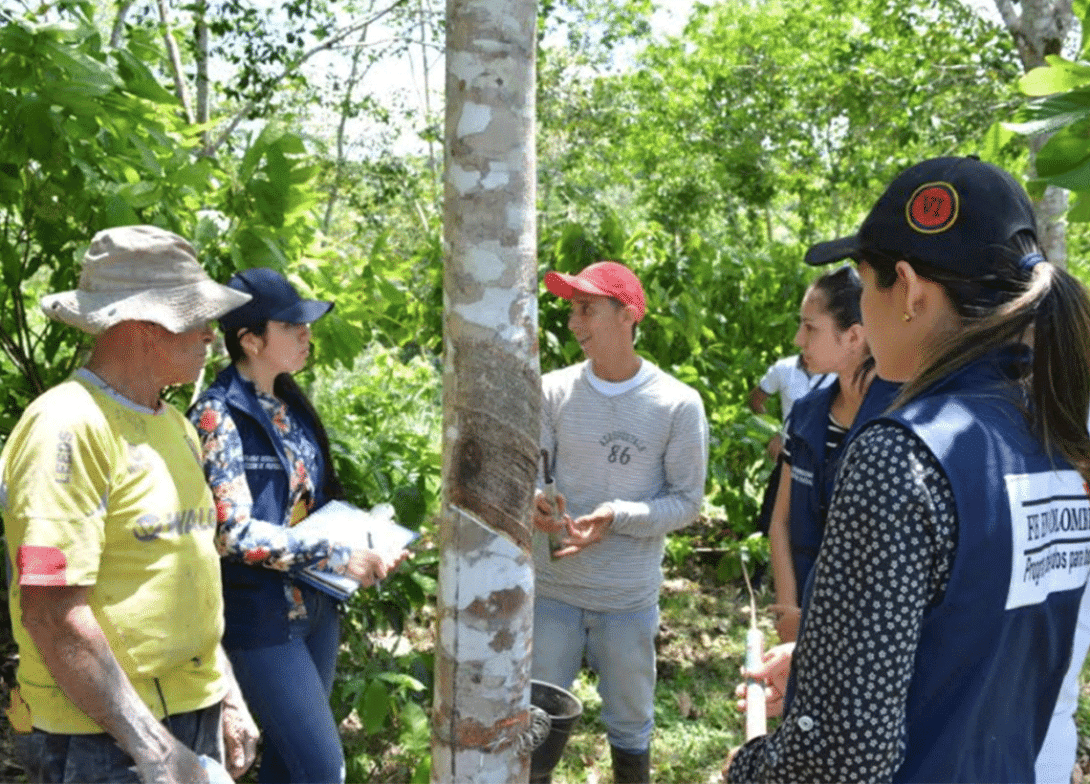The program Fe en Colombia with international donors has led 40 families to have tools to convert the municipality of the north of the department into a potential producer of latex.
San Vicente del Caguán has historically been the Cattle Store of the department of Caquetá, where great economic transactions take place by the commercialization of live cattle and dairy products as well as their derivatives. However, farmers in this sector of the region are searching other alternatives such as rubber production that has been strengthened in recent years with international cooperation resources that reach the territory through the strategic allies of the National Army.
"Although we grow here livestock, we begin to see a lot of response of the population, of the producers, to diversify the farms," explained Arsenio Rojas, legal representative of the Caucheros Association of the municipality.
In November 2017, following a project managed by the program Fe en Colombia of the National Army and the Turkish Cooperation Agency 'Tika', 40 families associated in the Caucheros Committee of San Vicente del Caguán received kits of agricultural machinery such as scythes, spray pumps for irrigation and solar panels for an amount exceeding 380 million pesos, to improve plantations, in order to obtain in the next three years, the equivalent to the current production of the region.
These elements in addition to improve technologies in the phase of production of the milky products that becomes raw material of hundreds of elements that are commercialized in the world market, have also contributed to improve the economy of the farmers that promote this initiative that generates 1,2 and 1,5 permanent jobs per year per plantation, while optimizing time, cleaning the plantations in shorter periods, improving irrigation systems and additional wages in other farms, generating additional income.
A clear example of this is that of Víctor Manuel Chitiva, president of the same association, who explains how, with these aids, his quality of life has improved. "I received a scythe, before I took eight or ten days cleaning the plantation, now it takes me four days because it is faster, that's why I am totally grateful to Turkey and the National Army, because they were the ones who helped us" he said.
This coordination in the same way aims to make the country lands a prosperous and family business, ensuring that parents inherit their children with businesses strengthened, mitigating the migration of young people to the cities.
For example, Gabriel Osiris Muñoz, a 21-year-old man of the village of Sotará, decided to train at the National Apprenticeship Service, SENA, as a rubber exploiter, after his father don Manuel began to cultivate the natural resource and became beneficiary of the distribution of elements that have led them to improve production.
"First of all I want to thank the Fe en Colombia program for managing these elements, this machinery with which they benefited us, we have had a good experience with the rubber issue and we had not received such direct help from any organization. We are very grateful because now we can clean the plantations at the right time to have a better development of them," he said.
Source: Comprehensive Action and Development Support Command - CAAID





